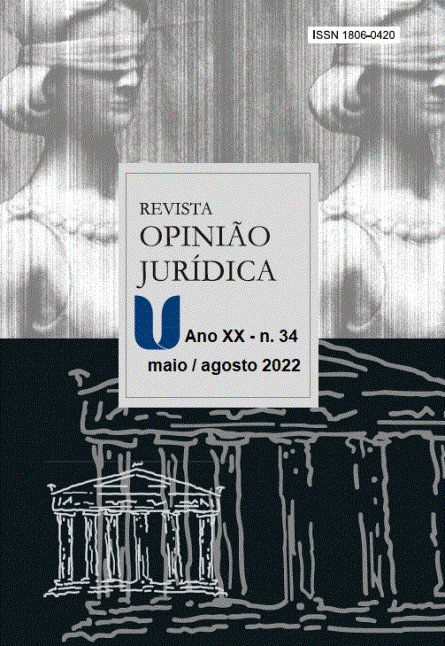THE JUDICIALIZATION OF STRUCTURAL INJUNCTIONS AS A STRATEGY FOR POLITICAL MOBILIZATION: SOCIAL CHANGES FROM“BOTTOM-TOP” OR “TOP-BOTTOM”?
DOI:
https://doi.org/10.12662/2447-6641oj.v20i34.p85-113.2022Keywords:
socioeconomic and cultural rights, structural injunctions, public policies, global southAbstract
Objective: This article studies how the protection of socioeconomic and cultural rights (ESC rights) by national courts, in the Global South, can work from a counter-intuitive logic and foster social inequalities. In Brazil, it was observed the problem of individuals with more privileged economic and financial situation and aware of their citizenship are more benefited by the justiciability of ESC rights, to the detriment of socially vulnerable groups.
Methodology: The research analyzes the problem of the ineffectiveness of these rights using the deductive method and bibliographic and documental research, investigating how the structural injunctions can be a strategy of political mobilization to trigger social transformations. Thus, the objective is to advance the debate on the roles that organized civil society, as well as the Constituted Powers, can play in an attempt to overcome systemic failures that involve massive and repeated violations of fundamental rights. In this context, it is discussed how social changes can occur, “from the bottom up” or “from the top down”. For this purpose, David Landau's ESC rights protection models were evaluated, as well as the effects of structural sentences and the impacts of affirmative and transformative measures.
Results: In the end, it was concluded that the judicialization of structural demands involving the need for adjustment, design or implementation of a public policy, can work as an alternative means to the protection that has been offered to ESC rights by the courts, provided that judges use dialogical procedural tools , rather than prolate self-referenced atomized decisions. Thus, the struggle for social changes must occur, necessarily, through the coordination of efforts between judges, majority bodies and organized civil society.
Contribuitions: It introduces structural processes as an alternative form to the atomized protection of social, economic and cultural rights, as well as pointing out the importance of dialogue and cooperation so that effective social changes can take place.
Published
How to Cite
Issue
Section
License
CESSION OF COPYRIGHTS
The submission of articles to analysis for publication on Opinião Jurídica implies the author(s) transfers copyrights to Centro Universitário Christus – UNICHRISTUS for reproduction, publicizing, distribution, printing and publication, according to the Publication Norm 414R, Opin. Jur., Fortaleza, year 12, n. 16, p.1-414, Jan./Dec. 2014, costs to be bore by UNICHRISTUS, in whatever format or means that may or shall exist, in accordance to articles 49 and following of Federal Law 9.610/98.
1. In ceding copyrights, the author(s) agrees to do so in exclusivity, free of charge and for the totality of the work.
2. UNICHRISTUS may make the work, in its entirety or in parts, available for scholarly purposes, without altering its contents, except for small corrections that are deemed necessary.
3. The cession of copyrights is valid in all countries and for versions of the material in its original language or translated into a foreign language.
RESPONSIBILITY FOR THE CONTENT
By submitting an article, the author(s) declare to have sole responsibility for the content of the piece and is(are), therefore, responsible for any judicial or extrajudicial measures referring to it.
1. In case of joint authorship, all authors are considered collectively responsible, except when proved otherwise.


















